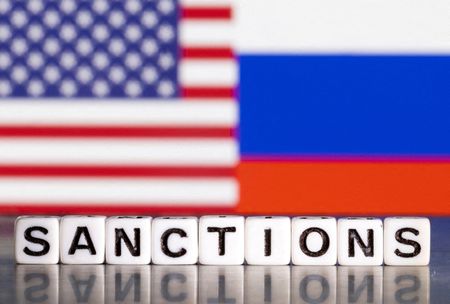 1
1 1
1


WASHINGTON/LONDON (Reuters) -The U.S. Treasury Department has advised U.S. money managers that Washington’s sanctions on Moscow bar any secondary market purchases of debt or stocks belonging to Russia’s government and firms, not just newly issued, further tightening curbs on the country following its invasion of Ukraine.
The Treasury’s guidance published on Monday said executive orders imposing sanctions on Russia “prohibit U.S. persons from purchasing both new and existing debt and equity securities issued by an entity in the Russian Federation.”
“Consistent with our goal to deny Russia the financial resources it needs to continue its brutal war against Ukraine, Treasury has made clear that U.S. persons are prohibited from making new investments in the success of Russia, including through purchases on the secondary market,” a Treasury spokesperson said.
Previously, Washington had barred Americans from buying any newly issued Russian debt. The new guidance clarified that the ban also applies to any debt already in circulation in the secondary market.
Analysts at Morgan Stanley have estimated that the amount of Russian government and corporate debt on international markets added up to just over US$472 billion at the start of the year, making it one of the largest in terms of size in emerging markets behind the likes of Mexico, Indonesia and Turkey.
The United States and its allies have imposed several rounds of sanctions on Moscow since its Feb. 24 invasion of Ukraine, including targeting the country’s largest lenders and Russian President Vladimir Putin himself.
Russia has bombed cities to rubble and civilian bodies have been found in towns where its forces withdrew since starting what it calls a special operation to demilitarize Ukraine. Kyiv and its Western allies say it is a baseless pretext for an unprovoked war.
(Reporting by Daphne Psaledakis in Washington and Marc Jones in London; Editing by David Gregorio)